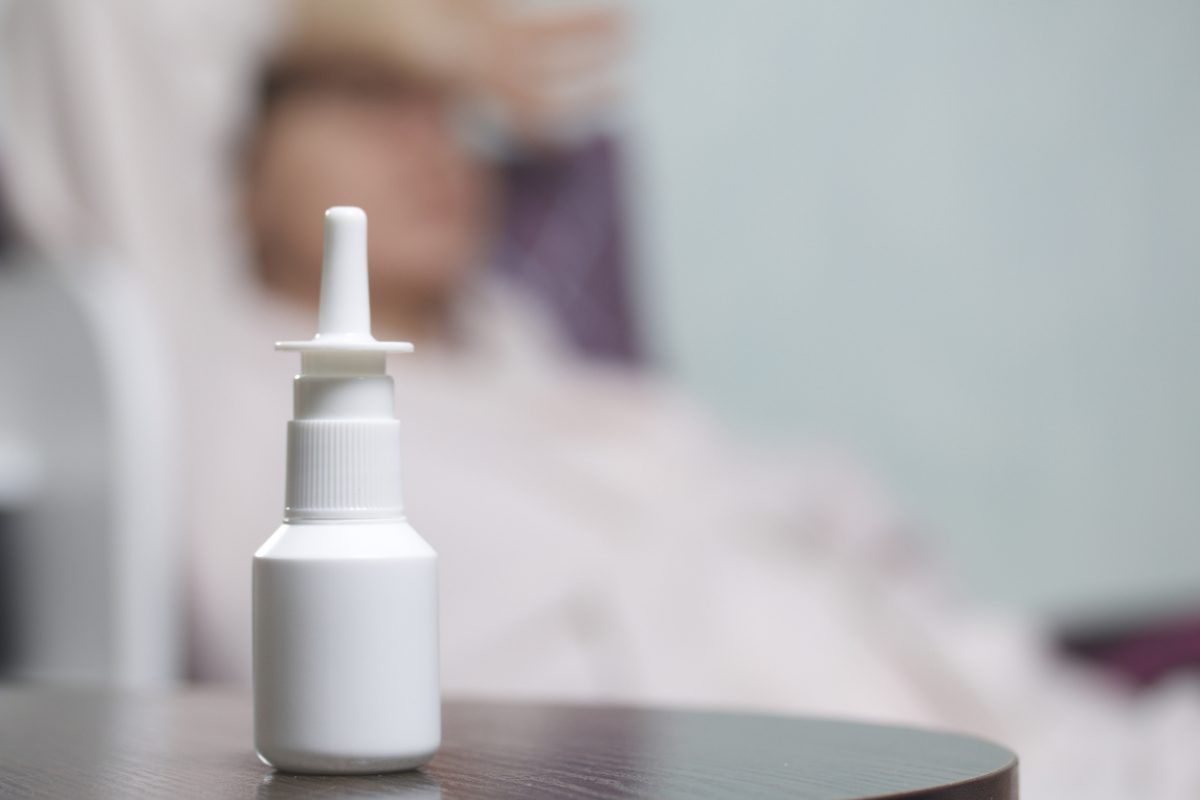Incubus syndrome is a rare delusional misidentification phenomenon in which individuals report being sexually approached by an unseen, often supernatural entity.1 Traditionally described in women and rooted in folklore, modern psychiatry recognizes it as a manifestation of psychotic disorders, dissociative states, or substance-induced psychoses. The term incubus refers to a male demon that engages in sexual activity with women during sleep; its female counterpart is known as a succubus.2,3 Scientific literature on incubus syndrome is limited, particularly among male patients. We present a rare case of a man with alcohol dependence who developed multisensory hallucinations characteristic of incubus syndrome.
Case Report
A 36-year-old man presented to the psychiatry emergency service with a 3-day history of perceptual disturbances, unusual bodily sensations, and insomnia. He had a long-standing history of alcohol use starting in adolescence, consuming approximately 500 mL of brandy daily.
He reported experiencing “vibrations” in his fingers, which he interpreted as a form of communication by 4 women dressed in black. He claimed these figures responded to his questions by guiding his fingers to letters on a self-made alphabet chart. He also described unclear auditory hallucinations (eg, anklet sounds) and visual hallucinations of partially unclothed women. These figures reportedly touched and sexually approached him at night, leading to orgasmic sensations. While initially pleasurable, these experiences became distressing when he began perceiving threats from the figures, including ominous statements like “We will take you to the deathbed.”
His family noted a recent reduction in alcohol consumption, accompanied by fearfulness, disturbed sleep, and beliefs in ghostly presences. There was no history of seizures, previous psychiatric illness, or other substance use. His last alcohol intake was 1 day before admission.
On examination, the patient was anxious, with bizarre somatic experiences and multimodal hallucinations—visual, auditory, and tactile. He was alert and oriented, with partial insight. A computed tomography scan of the brain revealed no abnormalities. Routine blood tests were within normal limits, except for mildly elevated liver enzymes: aspartate aminotransferase (AST) at 127 IU/L and alanine aminotransferase (ALT) at 70 IU/L (reference ranges, AST: 10–40 IU/L, ALT: 7–56 IU/L).
Discussion
Incubus syndrome is most often reported in women with primary psychotic disorders such as schizophrenia.1,4 Fewer than a dozen clinical cases have been documented, with even fewer among men.1,5 Male cases have been associated with substance use or neurological comorbidities.6,7
In this patient, the multisensory hallucinations—visual images of female figures, tactile vibrations in his fingers, and auditory anklet sounds—coalesced into a structured delusional system.7,8 His use of an alphabet chart to “communicate” with the figures demonstrates the level of systematization and the cognitive elaboration underlying his delusion.9
Given the temporal relationship with alcohol withdrawal and chronic use, alcohol-induced psychotic disorder was the most likely diagnosis.10 Unlike delirium tremens, the patient had stable orientation and no fluctuating consciousness.11 A primary psychotic disorder was considered less likely due to the absence of prior episodes.12 Hypnagogic or hypnopompic hallucinations were also unlikely, as the symptoms persisted beyond sleep-wake transitions.13
Treatment focused on alcohol withdrawal management with benzodiazepines, leading to rapid resolution of hallucinations. Lorazepam was used effectively, consistent with current guidelines for alcohol-related hallucinosis.14 Supportive counseling and family psychoeducation were provided to reduce relapse risk and improve insight.10
This case highlights a rare presentation of incubus syndrome in a male patient with alcohol dependence. The vivid multisensory hallucinations and structured delusional beliefs underscore the complex interplay between cultural content, substance use, and psychopathology. Prompt recognition and treatment of substance-induced psychosis can lead to favorable outcomes.
Article Information
Published Online: October 14, 2025. https://doi.org/10.4088/PCC.25cr03989
© 2025 Physicians Postgraduate Press, Inc.
Prim Care Companion CNS Disord 2025;27(5):25cr03989
Submitted: April 23, 2025; accepted June 20, 2025.
To Cite: Mittal T, Jalaja Haridas N. Incubus syndrome in a man with alcohol dependence. Prim Care Companion CNS Disord 2025;27(5):25cr03989.
Author Affiliations: Department of Psychiatry, Government Medical College, Kozhikode, Kerala, India (both authors).
Corresponding Author: Tanvi Mittal, MBBS, Department of Psychiatry, Government Medical College, Kozhikode, Kerala, India 673008 ([email protected]).
Relevant Financial Relationships: None.
Funding/Support: None.
Patient Consent: Consent was obtained from the patient to publish the case report, and information has been de-identified to protect patient anonymity.
ORCID: Tanvi Mittal: https://orcid.org/0009-0009-4608-6413; Nishanth Jalaja Haridas:
https://orcid.org/0000-0002-2517-2031
References (14)

- Grover S, Mehra A. Incubus syndrome: a case series and review of literature. Indian J Psychol Med. 2018;40(3):272–275. PubMed CrossRef
- Cox AM. Sleep paralysis and folklore. JRSM Open. 2015;6(7):2054270415598091. PubMed CrossRef
- Varadharajan N, Bascarane S, Menon V. Atypical incubus syndrome: a case report. Indian J Psychiatry. 2021;63(2):203–204. PubMed CrossRef
- Raschka LB. The incubus syndrome: a variant of erotomania. Can J Psychiatry. 1979;24(6):549–553. PubMed CrossRef
- Gogoi P, Ghosh S. Case report and analysis of an intriguing phenomenon in schizophrenia: incubus syndrome. J Psychosexual Health. 2025;0(0).
- Tjokrodipo L, Sneep A, Michielsen P. A case of incubus phenomenon. Eur Psychiatry. 2021;64(suppl 1):S818. CrossRef
- Molendijk ML, Bouachmir O, Montagne H, et al. The incubus phenomenon: prevalence, frequency and risk factors in psychiatric inpatients and university undergraduates. Front Psychiatry. 2022;13:1040769. PubMed CrossRef
- Victor R, Avinash P, Rohatagi R, et al. The devil molested me: a case series of incubus syndrome from North India. Ind Psychiatry J. 2022;31(2):346–349. PubMed CrossRef
- Kremen WS, Seidman LJ, Goldstein JM, et al. Systematized delusions and neuropsychological function in paranoid and nonparanoid schizophrenia. Schizophr Res. 1994;12(3):223–236. PubMed CrossRef
- Murray BP, Richards JR, Stankewicz HA, et al. Alcohol-related psychosis. In: StatPearls. StatPearls Publishing; 2025.
- Grover S, Ghosh A. Delirium tremens: assessment and management. J Clin Exp Hepatol. 2018;8(4): 460–470. PubMed CrossRef
- Mendelsohn A, Sato T, Subedi A, et al. State-of-the-Art review: evaluation and management of delusional infestation. Clin Infect Dis. 2024;79(2): e1–e10. PubMed CrossRef
- Gangdev P, Dua V, Desjardins N. Isolated sleep paralysis and hypnic hallucinations in schizophrenia. Indian J Psychiatry. 2015;57(4):383–385. PubMed CrossRef
- Weintraub SJ. Diazepam in the treatment of moderate to severe alcohol withdrawal. CNS Drugs. 2017;31(2):87–95. PubMed CrossRef
Enjoy this premium PDF as part of your membership benefits!





